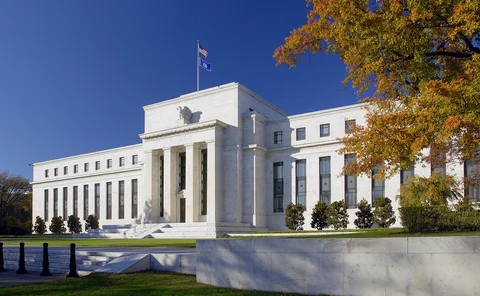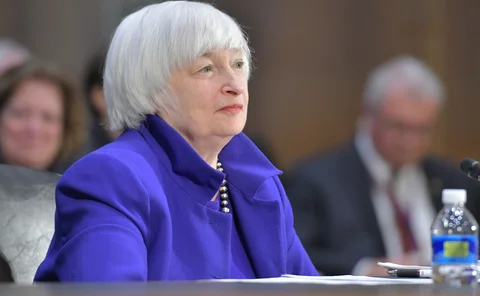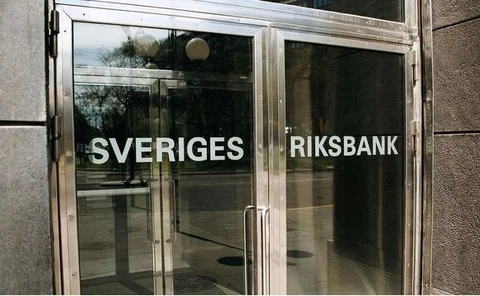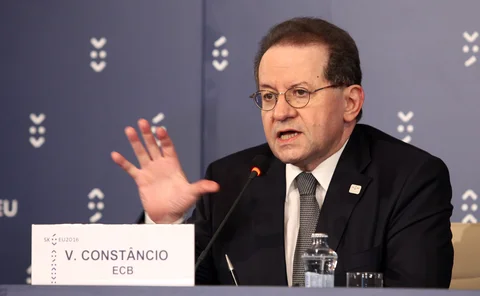Unconventional monetary policy
ECB’s corporate bond-buying had positive effect in Spain, research says
Stimulus reduced yields for non-financial firms and increased credit to smaller companies
Central banks lack ‘firepower’ to combat financial crises, says report
Without interest rate cuts available, the next financial crisis could be much “longer and deeper”, Global Risk Report says
Fed economists tackle question of optimal balance sheet size
Cutting balance sheet would significantly reduce interest rate risk, economists find, as Fed acknowledges lower profits due to interest payments
ECB corporate bond purchases fall to lowest level in December
CSPP is expected to rebound in January, while the ECB reduces QE to €30 billion a month
Loose policy supported equality in Sweden – Skingsley
Deputy governor of Sveriges Riksbank reflects on how monetary policy promotes inclusive growth
Small open economies benefit from QE spillovers – IMF paper
Fed’s QE had a similar net positive effect in Canada to that in the US
BoE economist explores ‘active’ QE model
Quantitative easing could be made a more conventional part of central bank toolkits, used to help support spending and inflation, says Harrison
ECB officials disagree on open-ended QE
Agreement on keeping private-sector purchases sizeable, which would increase their importance
Swiss bond market contracts despite negative rates – SNB’s Maechler
Shift driven by lower issuance by Swiss government and reduced financing needs of banks
Unconventional policy driving crypto bubble, BNPP economist argues
Cryptocurrencies have the potential to deliver “large, positive returns” in an environment stifled by negative real rates
Riksbank’s executive board divided over QE programme
Some members advocate ending stimulus in December, others fear that could reduce inflation
German economic council urges ECB to tighten policy
Group of experts says stronger growth and loose policy could lead to higher financial risk
ECB may change composition of QE, researchers say
Lower levels of sovereign bond acquisitions may allow the central bank to extend stimulus into 2019
ECB QE lowers yields via portfolio reshuffling – research
Sovereign bond-buying programme sharply reduced 10-year Bund yields
ECB to reduce monthly asset purchases to €30 billion
Central bank extends QE by nine months until September 2018, and keeps rates unchanged
ECB likely to extend QE despite stronger growth, analysts say
Central bank expected to prolong programme by six months at reduced monthly rate of €30 billion
QE and negative deposit rates have increased lending – ECB
Sub-zero deposit rate has created small boost, but only 10% of banks report higher lending volumes due to negative rates
ECB taper unlikely to upset major European equity investors
Norway’s sovereign wealth fund is boosted by its €200 billion investment in European stocks
Don’t underestimate the Fed’s balance sheet unwind – Fischer
Stanley Fischer offers advice to colleagues in his final scheduled speech before leaving in October: “never say never”
Czech exchange rate floor helped fight deflation – IMF paper
Range of methods imply the exchange rate floor was an effective measure, having been employed after hitting the zero lower bound
The Treasury could make QE exit faster and smoother
Swapping longer-term bonds for Treasury bills or floating-rate bonds would expedite the process of reducing bloated central bank balance sheets
St Louis Fed explains Fed’s plans to unwind balance sheet
Fed expected to stop replacing maturing securities to reduce $4.5 trillion balance sheet
QE has positive spillovers into south-eastern Europe, ECB paper says
Some countries experience stronger inflationary effects than eurozone - researchers
QE has not increased eurozone inequality - ECB’s Constâncio
Low-income households benefit most from stimulus, ECB vice-president says





















